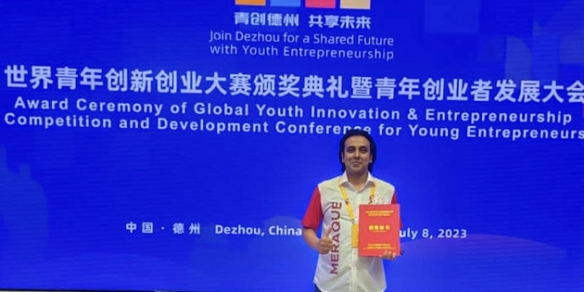Cyberview zooms in on environmental sustainability in Smart City plan
By Goh Thean Eu May 8, 2017
- By 2050, some 64% of Asia will be urbanised – creating sustainability challenges on a huge scale
- Initiatives are continuously underway in Cyberjaya to qualify its buildings for the Green Building Index (GBI) Certification

OVER the past several years, Cyberjaya has grown and developed into one of the most advanced and forward thinking townships in Malaysia.
Previously known as a township that hosts a suite of tech multinational companies (MNCs), Cyberjaya is now increasingly known as a township that embraces innovation.
However, for Cyberview Sdn Bhd, the tech hub enabler tasked at developing Cyberjaya, it hopes to be more than a hub that embraces innovation. It believes the township - which has what it takes to be a smart city - needs to be environmentally sustainable.
“When we set out to re-define our focus for Cyberjaya’s transformation under the Cyberjaya Smart City Framework, we made sure that the necessary conditions were put in place to support the development and deployment of Smart City Solutions to improve our impact on the environment, our infrastructure, economy as well as the social element of the city,” said Cyberview managing director Faris Yahaya (pic above).
“While we have made significant strides in improving the liveability factor of Cyberjaya for its inhabitants, environmental sustainability remains a key area in measuring the performance of a city,” said Faris.
“In this respect, I believe Cyberjaya today is a prime test-case for other up-and-coming urban developments on how technology and innovation can converge to positively impact the lives of its inhabitants.”
By 2050, some 64% of Asia will be urbanised – creating sustainability challenges on a huge scale. Here in Malaysia, we are already recognised as being among the more urbanised countries of East Asia after Japan, the Republic of Korea, Singapore, and Taiwan. And with an urban population increasing from 10.2 million (43% of the total population) to 15 million (53%) between 2010 and 2015, our cities are growing increasingly overcrowded – leading to a strain on resources such as water, energy, and safe housing.
Living Lab and sustainability
By offering Cyberjaya as a Living Lab for the Internet of Things (IoT), Cyberview has been able to bring in and pilot technologies that have both enriched its smart city ecosystem while offering sustainable living solutions for the residents and businesses based in Cyberjaya.
Cyberjaya became the first smart city in Southeast Asia equipped with a city-wide LoRa network – a long range, low power connectivity platform optimised for IoT applications. The first project to take off from this platform is a pilot on an air quality index measurement system that saw a partnership between Cyberview and Atilze Sdn Bhd.
While Malaysia is still using PM10 as a parameter to measure particulate pollution (detecting fine particulate matter that measure up to 10 micrometers or 10 microns), this state-of-the-art system monitors and provides near real-time readings for fine atmospheric particulate matter measuring equal to or less than 2.5 micrometers or 2.5 microns.
With the technological properties of LoRa being uniquely well-suited to other environmental monitoring applications, other sustainability technologies can also be piloted and validated out in a real-life smart city setting.
Incremental progress on existing facilities
Of course, environmental sustainability does not necessarily have to be built on the latest groundbreaking technologies. Meaningful incremental changes to the way things are done can also go a long way in providing a significant impact.
“From tweaking Cyberjaya’s existing facilities to testing out sustainability projects in our own backyard, we have been able to fully utilise the infrastructure present in the city to pilot innovations contributing to our targets under the Low Carbon Cities Framework (LCCF),” said Faris.
He said that initiatives are continuously underway in Cyberjaya to qualify its buildings for the Green Building Index (GBI) Certification – a green rating tool to promote sustainability in the built environment.
“We also have solar panels installed at several properties including our carpark shelter, CoPlace building as well as the Cyberjaya Community Recycling Collection Centre (CCRCC); generating an estimated cost savings of more than 13% per annum. This is in addition to two electric vehicles (EV) owned by Cyberview and 14 charging stations deployed around Cyberjaya to provide alternative means of getting around the city,” added Faris.
“These efforts underscore our commitment to sustainability and achieving energy efficiency. It is our hope that these efforts will add up to ultimately make a difference in the way we carry out our daily routines.”
Related Stories:
Cyberjaya smart city development accelerated with cashless society push
Cyberjaya all set to be SEA’s first LoRa-powered smart city
Cyberview, Finnext Capital focus on fintech startups
For more technology news and the latest updates, follow us on Twitter, LinkedIn or Like us on Facebook.


